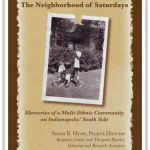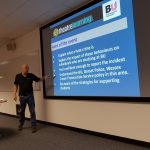Speaker: Dr Susan Hyatt, Visiting Fellow, Department of Applied Social Sciences, Durham University, Associate Professor of Anthropology, IU School of Liberal Arts, Indiana University – Purdue University, Indianapolis
Monday, 17th June 2013
12:00– 13:30
R303 Royal London House
Abstract:
Over the past 20 years, institutions of higher learning in the US, both public and private, have increasingly emphasized the value of civic engagement and community outreach as integral parts of their educational missions. In my teaching of applied anthropology, I have embraced this pedagogical turn as a way to involve students in community-based issues and to promote critical thinking. In this talk, I offer several brief examples where I have taken students out off the campus and into the community to engage in collaborative research projects. And, I have also offered students opportunities to participate in courses taught in somewhat unconventional community settings, including prisons and a residential treatment facility for women overcoming addiction. I argue that through such courses, we do not teach our students about social justice; rather, we allow students to experience for themselves the inequalities that structure much of our contemporary world and to reflect deeply on the ways that social action connects theory with practice.
 Developing Student-Community Research Collaborations in Sociology and Anthropology at BU
Developing Student-Community Research Collaborations in Sociology and Anthropology at BU Challenging Hate Crime on Campus: Encouraging student awareness, interaction and debate through Forum Theatre
Challenging Hate Crime on Campus: Encouraging student awareness, interaction and debate through Forum Theatre










 On Christmas Day in the Morning…
On Christmas Day in the Morning… New Nepal scoping review on maternal & neonatal health
New Nepal scoping review on maternal & neonatal health Fourth INRC Symposium: From Clinical Applications to Neuro-Inspired Computation
Fourth INRC Symposium: From Clinical Applications to Neuro-Inspired Computation Writing policy briefs
Writing policy briefs ECR Funding Open Call: Research Culture & Community Grant – Application Deadline Friday 12 December
ECR Funding Open Call: Research Culture & Community Grant – Application Deadline Friday 12 December MSCA Postdoctoral Fellowships 2025 Call
MSCA Postdoctoral Fellowships 2025 Call ERC Advanced Grant 2025 Webinar
ERC Advanced Grant 2025 Webinar Horizon Europe Work Programme 2025 Published
Horizon Europe Work Programme 2025 Published Horizon Europe 2025 Work Programme pre-Published
Horizon Europe 2025 Work Programme pre-Published Update on UKRO services
Update on UKRO services European research project exploring use of ‘virtual twins’ to better manage metabolic associated fatty liver disease
European research project exploring use of ‘virtual twins’ to better manage metabolic associated fatty liver disease